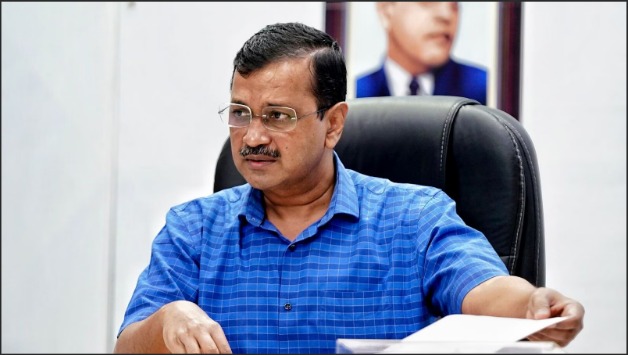
In the heart of Delhi, the sudden arrest of Arvind Kejriwal, the leader of the Aam Aadmi Party (AAP), has caused quite a stir in the political scene. People who support both AAP and the Bharatiya Janata Party (BJP) are confused about why Kejriwal was arrested right before the Lok Sabha elections. Many wonder if this arrest is meant to help opposition parties win in the elections.
Kejriwal’s arrest raises an important question: Is it a legal issue or a political move? Delhi’s politics can be confusing, with justice sometimes mixing with political strategy. Some think this arrest is a legal action taken at the right time, while others see it as a political move to change people’s opinions.
The BJP has been working hard to discredit Kejriwal, connecting him to alleged scandals like the Delhi Jal Board scam. The continuous summons by the Enforcement Directorate (ED) and the eventual arrest seem to support the BJP’s claims of corruption in the AAP leadership.
However, amidst all this chaos, we must consider how Kejriwal’s arrest might affect the upcoming elections. It has brought opposition parties together, strengthening alliances like the India United Front. Leaders from parties like the Congress, who used to criticize Kejriwal, are now supporting him against what they see as the central government’s heavy-handed tactics.
But it’s still unclear how Kejriwal’s arrest will impact public opinion. Will it help the opposition or make the BJP’s support stronger, especially with Prime Minister Modi’s reputation as an anti-corruption fighter?
Also, recent comments by judges about electoral bonds and whether political leaders should get bail add another layer of complexity to the political situation. People are trying to figure out what’s true and what’s just political talk.
What do you think about the topic of Arvind Kejriwal’s arrest and what do you believe will happen as a result?
The topic of Arvind Kejriwal’s arrest and its consequences is quite significant. It has the potential to impact the political landscape in Delhi and possibly even affect the upcoming elections. The arrest might lead to a shift in public opinion, either in favor of the opposition parties or in support of the BJP. Additionally, it could strengthen alliances among opposition parties, making them more united against the central government. Overall, the arrest raises questions about the balance between legal actions and political motives, and its effects remain to be seen as the situation unfolds.
Several questions arise from the topic of Arvind Kejriwal’s arrest and its consequences:
Q1. Why was Arvind Kejriwal arrested just before the Lok Sabha elections?
Q2. Is his arrest primarily a legal matter or a political move?
Q3. How will Kejriwal’s arrest impact public opinion in Delhi and the upcoming elections?
Q4. Will the arrest strengthen opposition parties’ alliances and their chances in the elections?
Q5. What role does the Bharatiya Janata Party (BJP) play in Kejriwal’s arrest, and what are their motives?
Q6. How will Kejriwal’s arrest affect the perception of corruption within the Aam Aadmi Party (AAP) leadership?
Q7. What implications does the arrest have for the balance of power between the central government and state governments?
Q8. How do recent judicial remarks on electoral bonds and granting bail to political leaders add complexity to the situation?
Q9. What impact will Kejriwal’s arrest have on the common people of Delhi and their trust in the political system?
Q10. What are the broader implications of this arrest for Indian politics and governance?
Here are some possible thoughts on each question:
Q1. Why was Arvind Kejriwal arrested just before the Lok Sabha elections?
Ans. One perspective could be that the timing of Kejriwal’s arrest raises suspicions of political motives, especially considering its proximity to the elections. It may be perceived as an attempt to tarnish his image and weaken his party’s electoral prospects.
Q2. Is his arrest primarily a legal matter or a political move?
Ans. While the arrest may have legal justifications, its timing and the manner in which it was carried out could suggest political motivations. This raises questions about the independence of law enforcement agencies and the potential abuse of power for political gain.
Q3. How will Kejriwal’s arrest impact public opinion in Delhi and the upcoming elections?
Ans. The impact of Kejriwal’s arrest on public opinion may vary. Some may view it as evidence of corruption within the AAP leadership, while others may perceive it as a politically motivated attack. This could influence voter sentiments and party support in the elections.
Q4. Will the arrest strengthen opposition parties’ alliances and their chances in the elections?
Ans. Kejriwal’s arrest may serve to unite opposition parties against the ruling party, particularly if they perceive it as an authoritarian tactic to suppress dissent. This could lead to stronger alliances and potentially improve their electoral prospects.
Q5. What role does the Bharatiya Janata Party (BJP) play in Kejriwal’s arrest, and what are their motives?
Ans. The BJP’s involvement in Kejriwal’s arrest could be seen as part of their broader political strategy to discredit opponents and consolidate power. Their motives may include weakening the AAP’s influence in Delhi and gaining electoral advantage.
Q6. How will Kejriwal’s arrest affect the perception of corruption within the Aam Aadmi Party (AAP) leadership?
Ans. Kejriwal’s arrest may reinforce existing perceptions of corruption within the AAP leadership, especially if he is found guilty of wrongdoing. This could damage the party’s credibility and erode public trust in its governance.
Q7. What implications does the arrest have for the balance of power between the central government and state governments?
Ans. The arrest of a state government leader by central authorities raises concerns about federalism and the autonomy of state governments. It could lead to tensions between the central government and opposition-ruled states, potentially impacting governance and intergovernmental relations.
Q8. How do recent judicial remarks on electoral bonds and granting bail to political leaders add complexity to the situation?
Ans. Recent judicial comments on electoral bonds and bail for political leaders highlight broader issues of transparency, accountability, and the rule of law in Indian politics. These comments add complexity to the discussion surrounding Kejriwal’s arrest and its implications.
Q9. What impact will Kejriwal’s arrest have on the common people of Delhi and their trust in the political system?
Ans. Kejriwal’s arrest may affect the trust of Delhi’s residents in the political system, depending on their perceptions of the arrest’s legitimacy and fairness. It could lead to disillusionment or heightened scrutiny of political leaders and institutions.
Q10. What are the broader implications of this arrest for Indian politics and governance?
Ans. The arrest of a prominent political leader like Kejriwal has broader implications for Indian politics and governance, including questions about the independence of institutions, the rule of law, and the health of democracy. It underscores the need for accountability and transparency in the political process.
In summary, Kejriwal’s arrest goes beyond just legal matters; it’s about power and how people see things in Indian politics. As Delhi prepares for the elections, we’ll have to wait and see how this unexpected event will play out.

